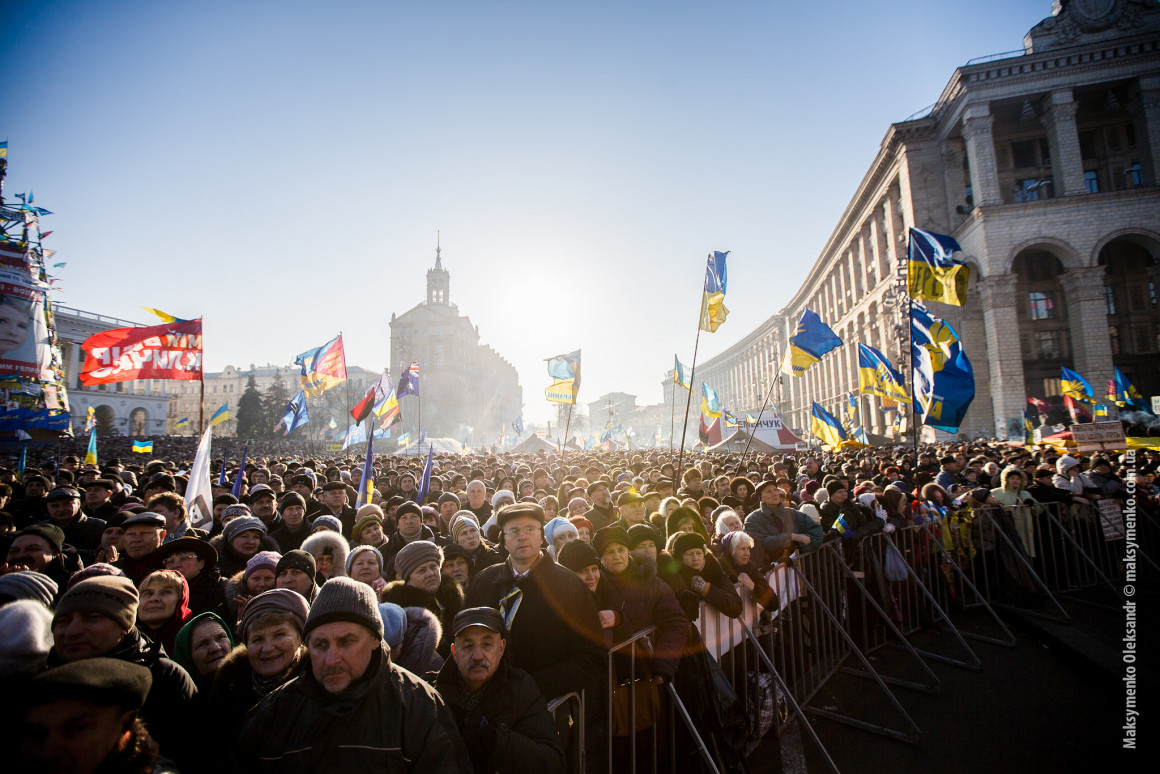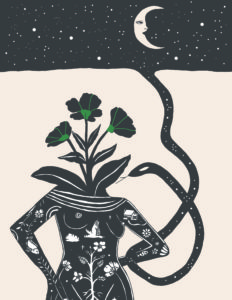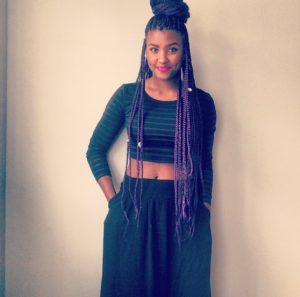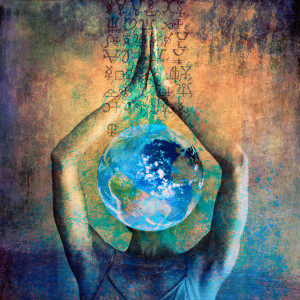I grew up in a society deeply wounded by war.
The USSR of my childhood was covered with monuments to war heroes. The culture was saturated with movies, books, and songs dedicated to the bravery of the Soviet soldiers defending their motherland. Every family was affected, as the USSR’s total death toll in World War II was about 24 million, or roughly 14 percent of the population—a number too large for me to truly grasp as a child.
My Soviet-era teachers did their best to convey the magnitude of this tragedy and to make sure we understood why this should never happen again. Unfortunately, they didn’t teach us how to stop wars from happening or how they start in the first place. They didn’t teach us the crucial skills of peacemaking, diplomacy, or transcending the “us vs. them” approach in favor of finding middle ground. They told us how heroic acts of selfless individuals helped to win a war—not to prevent one.
And so I grew up believing wars were simply started by greedy politicians and there was little one could do to stop them. I did not realize that violence only creates more violence, and that it could begin within me.
I was only 6 when the USSR shattered to pieces. Where my homeland had once been part of a stagnant empire stretching across one-seventh of the world’s landmass, it now morphed into Ukraine, a hopeful, independent, aspiring democracy of a manageable size. The transition was tough, yet thankfully it was peaceful.
My personal history was as complex and intertwined as my country’s. I spent the first 16 years of my life in Eastern Ukraine, speaking Russian as a first language and also learning Ukrainian. Both of my parents are ethnically half Russian, half Ukrainian, and both were born in Eastern Ukraine, although my dad grew up in Russia. They did their best with what they had, yet they were fed up with the propaganda and restrictiveness of the Soviet regime and willingly welcomed the next chapter.
When the USSR collapsed in 1991, Ukraine readjusted to new freedoms and responsibilities. In 1992, mainstream schools started offering full-time education in Ukrainian for the first time since the Russian government officially banned it from schools and print in the late 1800s. Contrary to the Soviet propaganda, we now learned of colorful and rich Ukrainian traditions, complex and poetic Ukrainian language, and fascinating history that included breakthrough innovation, self-organization, and spirited struggle for the right to live in peace.
I loved learning about the richness of my Ukrainian heritage, and in my teen years I had the opportunity to learn more about my Russian roots as well, when my parents moved to Moscow for my dad’s work. At first, it was exciting. I made great friends in Moscow, and there was plenty to love about living in a big city, the capital of the largest country in the world. However, in school I noticed a difference: To me, kids seemed just a little more aggressive toward each other, and teachers (with some brilliant exceptions) seemed less dedicated to their work, less inspired—and less inspiring. There was a darker, heavier mood to society. 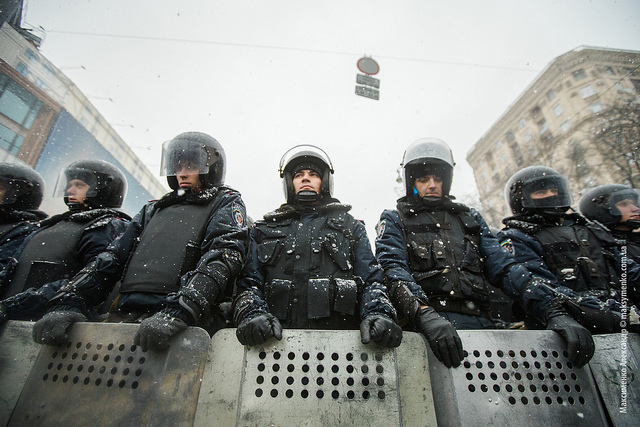
In Russia, even more so than in Ukraine, I never felt like I could trust the government institutions, police, elections, or judicial system. So “trusting life at large” was my only way to feel safe. For fear of being killed or persecuted, I didn’t fully devote myself to what felt really important to me—such as honest investigative journalism or environmental activism. It was no longer funny to hear the common saying “Strictness of laws in Russia is compensated with the non-obligation of following them.” The price of not following Russia’s rules seemed much too high. This was one of the main reasons that inspired my move to the U.S. in 2012—I wanted to live in a country that ran more smoothly and had less room for corruption. Yet as I settled into my new home, I continued to curiously watch the evolution of Ukraine and Russia from afar.
So when my social media feeds were flooded with reports of the protests in Ukraine at the end of 2013, I read them with joy, pride, and support. As I saw it, my people were getting self-organized, standing up for themselves, and demanding the Ukrainian president follow through with his promises and strengthen ties with the European Union instead of Russia. Who could possibly oppose that? And then the first blood was shed. There was fighting on familiar streets. A peaceful protest turned into a revolution. My people were overthrowing the corrupt government and finally breaking ties with the Soviet past.
I had been living in the U.S. for more than a year, but I joined the fray from afar. I quit doing everything else, and day after day I watched live-streaming from Maidan, the central square in Kiev where most of the events unfolded. I cried and sang the national anthem, feeling both scared and proud. Finally, I felt, there was hope for a better future.
To my surprise, not everyone shared my view of reality. The more I posted intense news about Ukraine, the more mixed feedback I got. There was speculation and blame. Just like deep cracks split city blocks during an earthquake, these events were creating a deep divide in the former USSR. Some of my friends from both Russia and Ukraine were as excited and hopeful as I was, and some were fearful and pessimistic. I started hearing memes that were exaggerations at best or obviously false at worst—for example, saying the entire revolution was orchestrated by the U.S., that everyone at Maidan was paid to be there, or that at the core of the movement were fascists intending to start killing everyone who was not Ukrainian or who was speaking Russian. I had friends who were at Maidan during the protests and following unrest, and these rumors didn’t match their reality.
Yet my friends whose opinions were formed by a different perspective than mine were incredulous at my explanations. “You have been brainwashed by the U.S.,” said a friend in Russia. “Who do you think you are, and why do you think Crimea should be Ukrainian?” wondered one of my Crimean friends. “You are such a bright person, how can you support these Nazis?” another asked.
I was incredulous in return. I have lived in many countries and formed my opinions based on a variety of sources, not just U.S. media. Yes, Ukraine and Crimea—and of course Russia—have a complicated history, filled with centuries of changing rulers, borders, political systems, and oppression. (Just one example is Stalin’s deportation of more than 200,000 ethnic Tatars from their Crimean homeland to Siberia in 1944.) But history shows that Soviet leader Nikita Khrushchev gifted Crimea to Ukraine in 1954. And no matter the particulars, staging an illegal referendum in a neighboring country using unidentified military (this part was publicly admitted by Russian leaders) is a devastating thing—for the people and economy of Crimea, for Russia as a member of the world community, and for Russia’s age-old relationship with Ukraine, however complex it has been historically.
Yet these infectious memes, however absurd, were spreading fast. I watched some of my friends incorporate them into their worldview. I tried to combat these ideas. I engaged in extended discussions with my friends, and then arguments, until eventually they unfriended or blocked me on Facebook. Some of them were not only intelligent and well-traveled, but also on a deep spiritual path, devout meditators and artists. I wondered, how could they possibly believe what they believe? I tried to use facts and logic to explain to them that they were wrong and lacking information, but I failed miserably. In their eyes, I was the wrong one. I was lacking information. I had been brainwashed by the media. And their conviction was just as strong and sincere as mine.
As events unfolded, and the Russian government poured resources into generating a negative media image of Ukrainian events, society on both sides of the border became increasingly polarized. I only lost a few friends, but I knew families and friendships that were broken up by opposing views and intense, violent arguments. In the months following these events, even previously apolitical people developed strong, emotionally driven opinions and were willing to go far in defending them, forgetting how little we truly know about what is going on, what the politicians and oligarchs are talking about behind closed doors. The two sides of the divide were entering their own bubbles with increasingly thicker walls, seeking out sources that confirmed their opinions and ignoring anything that opposed them.
And then the revolution was followed by war. Russian parliament approved troop deployment in Ukraine in order to “ensure the safety of […] the Russian citizens living on Crimean territory,” as stated by the chairman of the Federation Council, Valentina Matviyenko, echoing Hitler’s rhetoric at the start of World War II. My mom attended an anti-war rally in Moscow, along with 350 others who were risking arrest and a misdemeanor charge for being part of a rally that was not approved by the authorities. She got arrested and taken in for questioning for holding a small sign that said “I am for peace.” Anyone sharing her views, opposing Russia’s invasion of Ukraine, or even using the term "invasion" to refer to it was labeled as a pro-Western traitor, first by media, and then by the general population
in Russia.
At the same time as physical war was unfolding in the east of Ukraine, an informational war was unfolding not just in Russia and Ukraine but around the world. And I had unwittingly joined “the couch battalion” and entered the digital battlefield, deepening the divide with every angry post I shared on Facebook, with every heated emotional argument I had with my opponents, with every condescending and sarcastic comment I made about them to those who shared my views.
I was creating war with my own actions. I was the source of it, I was the force that was elevating it, and I was—however subtly and eloquently—pouring hatred into the noosphere. Yet I was lying to myself that I was choosing peace.
And I chose to stop.
Deciding to stop takes a stroke of insight, yet actually stopping requires incredible patience and effort. Once we get used to a certain course of action, especially if we strongly believe the truth is on our side, it is very difficult to alter our behavior and start being compassionate toward the enemy, even after making a decision to do so. I decided to try.
 First of all, I decreased the amount of time I spent reading the news. Instead of obsessing over what the next comment from a certain politician really meant, or how many more soldiers had died in combat, or the latest dramatic story Russian media came up with, sometimes casting the same actors in their staged footage to play opposite sides, I started paying more attention to my work, my marriage, and my personal projects. I started noticing beautiful nature around me and the sun shining above me. I resolved to read and share positive stories as well. I listened to TED talks, took hikes, and browsed Pinterest. There was a part of me that felt terrible, superficial, irresponsible. How can I be reading about pencil skirts and the nutritional value of cruciferous vegetables when my compatriots are dying every day? Yet, as much as I could, I tried to reassure that part of me that, first and foremost, I needed to keep my own sanity. I needed to ground myself, to be connected to the earth and to beauty, and to not lose hope. If I really wanted to help, even if only my own family, I needed to restore my productivity.
First of all, I decreased the amount of time I spent reading the news. Instead of obsessing over what the next comment from a certain politician really meant, or how many more soldiers had died in combat, or the latest dramatic story Russian media came up with, sometimes casting the same actors in their staged footage to play opposite sides, I started paying more attention to my work, my marriage, and my personal projects. I started noticing beautiful nature around me and the sun shining above me. I resolved to read and share positive stories as well. I listened to TED talks, took hikes, and browsed Pinterest. There was a part of me that felt terrible, superficial, irresponsible. How can I be reading about pencil skirts and the nutritional value of cruciferous vegetables when my compatriots are dying every day? Yet, as much as I could, I tried to reassure that part of me that, first and foremost, I needed to keep my own sanity. I needed to ground myself, to be connected to the earth and to beauty, and to not lose hope. If I really wanted to help, even if only my own family, I needed to restore my productivity.
I started treating Facebook the way I would treat real people. I committed to not sharing stories or posts that had inflammatory language—name-calling, blame, or sarcasm—just as I would strive to not use any of it in real conversations. I still chose to speak up, but I focused on stories that shed light on injustice without inappropriate intensity. I am sure some of my posts, and even this article, could be interpreted as one-sided, yet I attempt to be respectful and to separate facts from opinions. I strive to be compassionate toward others, especially those I have strongest negative reactions to, whether they are fellow social media users or politicians, and to be responsible when speaking of their actions, especially those infuriating me the most. I made reading the news a spiritual practice, where any unrest is a chance to send some loving kindness.
And through it all, I saw how the deep wounds of conflict can have such far-reaching effects. When the land that birthed me experienced war some 6,000 miles away, it crept into my heart and mind, into my life and friendships, and caused havoc and destruction. I felt my own power of destruction. And I also felt my own potential for peace. Within myself, I was able to forgive the enemy and to start the long road toward peace. I am positive it is possible on a larger scale as well, and it starts within each one of us. It starts with non-violence in our communications with those around us: within our families, our social circles, our online community. In order to transform and heal what needs to be healed, we need to love those hardest to love, as they need it the most.
Top two photos by Sasha Maksymenko, licensed under CC 2.0, Last photo by Alexander Shustov on Unsplash.

